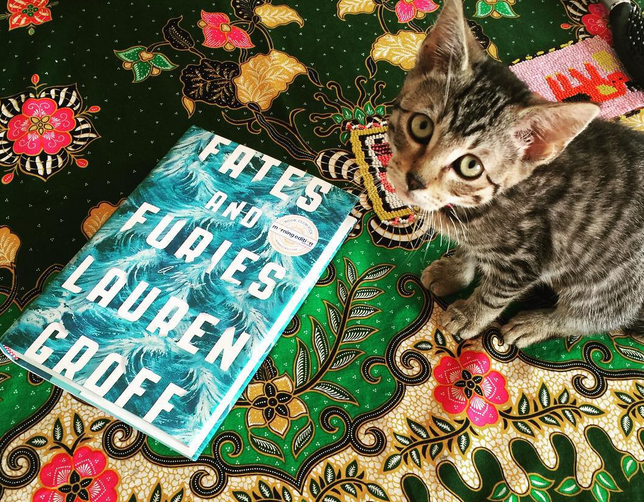


I was in a strange liminal space between the spring publication of my first novel, The Monsters of Templeton, and the birth of my first son at the end of August. In a word, the book is pretentious, but at least the author runs with it.I began Fates and Furies during the long, hot Florida summer of 2008. The prose is highfalutin, the main characters are so deep in the rarefied world of the arts that they’re not relatable, and the book over-reaches with the abundant references to classical tragedies and comedies, the parenthetical comments presumably from the Greek choir, and the excerpts from Lotto’s plays. I liked Fates and Furies, not least because the pacing is indeed “propulsive,” as the book’s back cover says, but I’d recommend it with the caveat that “ people who like this sort of thing will find this the sort of thing they like.” It’s not for everybody. Lotto’s “purity” comes more from his extraordinarily self-absorption than from any real strength of character, and Mathilde’s “coldness” is revealed to be a facade by her devotion to Lotto and her truly generous act in helping two people who had shown her nothing but malice and manipulation. … Do we close the book believing in the purity and genius of the fated son, or with nothing but a cold and lingering fury?” I’d answer: neither.

I typically skip long reviews of books before reading the book. critiques long book reviews and Lauren Groff’s Fates and Furies:


 0 kommentar(er)
0 kommentar(er)
